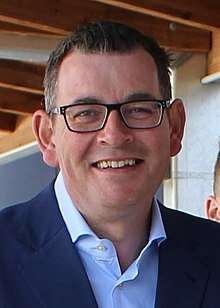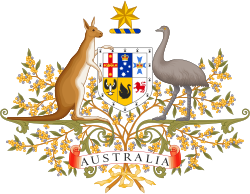2022 Victorian state election
The next Victorian state election is scheduled to be held on 26 November 2022 to elect the 60th Parliament of Victoria. All 88 seats in the Legislative Assembly (lower house) and all 40 seats in the Legislative Council (upper house) will be up for election, presuming there are no new electorates added in a redistribution.
| |||||||||||||||||||||||||||||||||
All 88 seats in the Victorian Legislative Assembly All 40 seats in the Victorian Legislative Council 45 Assembly seats are needed for a majority | |||||||||||||||||||||||||||||||||
|---|---|---|---|---|---|---|---|---|---|---|---|---|---|---|---|---|---|---|---|---|---|---|---|---|---|---|---|---|---|---|---|---|---|
| Opinion polls | |||||||||||||||||||||||||||||||||
| |||||||||||||||||||||||||||||||||
| |||||||||||||||||||||||||||||||||
Background
2018 election
The second-term incumbent Labor government, currently led by Premier Daniel Andrews, will attempt to win a third four-year term. They will be challenged by the Liberal/National Coalition opposition, currently led by Opposition Leader Michael O'Brien. Also expected to contest the election is minor party the Greens, currently led by Samantha Ratnam.
Electoral system
Victoria has compulsory voting and uses instant-runoff voting in single-member seats for the Legislative Assembly, and single transferable vote in multi-member seats for the proportionally represented Legislative Council. The Legislative Council presently has 40 members serving four-year terms, elected from eight electoral regions each with five members. With each region electing 5 members, the quota in each region for election, after distribution of preferences, is 16.7% (one-sixth). The election will be conducted by the Victorian Electoral Commission (VEC).
Redistribution
The Electoral Boundaries Commission must conduct a redistribution if there has been two general elections since the last redistribution. With the last redistribution occurring prior to the 2014 election, a new one will be concluded in 2021, prior to the 2022 election. According to commentators, Victoria's "booming population" will see new districts created in outer-suburban and inner-city areas, at the expense of middle-suburban areas.[1] At the 2018 election the voter enrollment in individual districts ranged from 61,814 in Cranbourne[2] to 38,937 in Mount Waverley.[3]
Date
Pursuant to the Electoral Act 2002, Victoria has had fixed terms, with all elections since the 2006 election held every four years on the last Saturday of November. This means that the date for the next election is currently set at 26 November 2022. This would change only if Parliament were dissolved unexpectedly beforehand.[4][5]
Registered parties
As of 19 June 2020, there were 15 parties registered with the Victorian Electoral Commission (VEC):[6]
Polling
Voting intention
Polling that is conducted by Newspoll and published in The Australian is conducted via random telephone number selection in city and country areas. Sampling sizes usually consist of over 1200 electors. The declared margin of error is ±2.8 percentage points.
| Date | Firm | Primary vote | TPP vote | |||||||
|---|---|---|---|---|---|---|---|---|---|---|
| ALP | LIB | NAT | GRN | OTH | ALP | L/NP | ||||
| 6 December 2018 Michael O'Brien becomes Liberal leader and leader of the opposition | ||||||||||
| 24 November 2018 Election | 42.9% | 30.4% | 4.8% | 10.7% | 11.2% | 57.3% | 42.7% | |||
| 23 November 2018 | Newspoll[7] | 41% | 40% | 11% | 8% | 53.5% | 46.5% | |||
| * Indicates a combined Liberal/National primary vote. | ||||||||||
| Newspoll polling is published in The Australian and sourced from here | ||||||||||
Preferred Premier and satisfaction
| Date | Firm | Better Premier | Andrews | O'Brien | ||||
|---|---|---|---|---|---|---|---|---|
| Andrews | O'Brien | Satisfied | Dissatisfied | Satisfied | Dissatisfied | |||
| 15–18 July 2020 | Newspoll[8] | not asked | 57% | 37% | not asked | |||
| 24–28 June 2020 | Newspoll[9] | not asked | 67% | 27% | not asked | |||
| 21–26 April 2020 | Newspoll[10] | not asked | 75% | 17% | not asked | |||
| 6 December 2018 O'Brien replaces Guy | Andrews | Guy | Andrews | Guy | ||||
| 24 November 2018 Election | – | – | – | – | – | – | ||
| 24–28 Oct 2018 | Newspoll[11] | 45% | 29% | 45% | 40% | 31% | 46% | |
| 22–24 Oct 2018 | YouGov | not asked | 44% | 35% | 24% | 42% | ||
| 7 October 2018 | ReachTEL[12] | 51.3% | 48.7% | not asked | ||||
| 11–13 Sep 2018 | YouGov[13] | not asked | 40% | 42% | 25% | 44% | ||
| * Remainder were "uncommitted" or "other/neither". † Participants were forced to choose. | ||||||||
| Newspoll polling is published in The Australian and sourced from here | ||||||||
References
- https://insidestory.org.au/final-reckoning-nine-views-of-victorias-election/
- "State Election 2018: Cranbourne District results summary - Victorian Electoral Commission". www.vec.vic.gov.au. Retrieved 25 December 2018.
- "State Election 2018: Mount Waverley District results summary - Victorian Electoral Commission". www.vec.vic.gov.au. Retrieved 25 December 2018.
- Table Office (24 May 2010). "Information Sheet 16 – A New Electoral System for Victoria's Legislative Council". Department of the Legislative Council. Parliament of Victoria. Retrieved 9 February 2015.
- "Fact Sheet G3: Elections" (PDF). Parliament of Victoria. December 2010. Retrieved 9 February 2015.
- "Currently registered parties - Victorian Electoral Commission". www.vec.vic.gov.au. Retrieved 19 June 2020.
- Ferguson, John (24 November 2018). "Victorian election: Labor on track for poll victory, Newspoll finds". The Australian. Retrieved 24 November 2018.
- "Andrews caught in voters' crossfire". The Australian. News Corp Australia. 21 July 2020.
- "Victorian premier loses support: poll". The Canberra Times. Australian Community Media. 30 June 2020.
- Benson, Simon (28 April 2020). "Premiers riding a wave of popularity". The Australian. News Corp Australia.
- Ferguson, John. "Newspoll: federal leadership turmoil hits Victorian Liberals' campaign". The Australian.
- "ReachTEL Poll: Andrews edges clear of Guy as State Election draws near". The Age. 7 October 2018.
- "Two-thirds think Melbourne's population is growing too fast". MacroBusiness. 17 September 2018.

.jpg)
.jpg)
